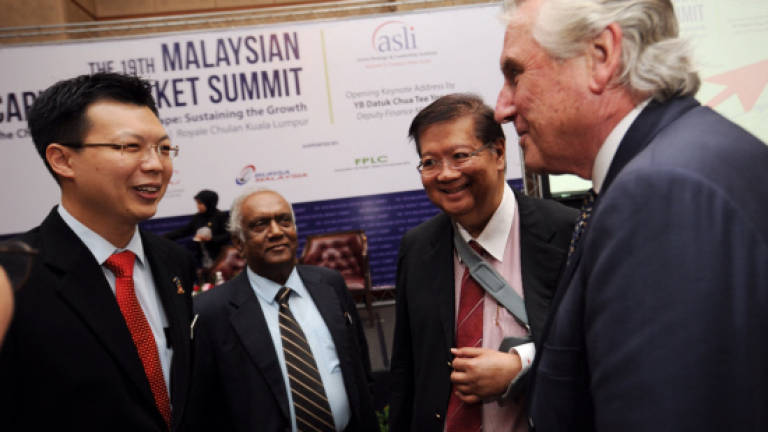Multi-tiered subsidy system still on the table

KUALA LUMPUR: The government is still reviewing the much debated multi-tiered fuel subsidy system despite economists and analysts opining that it was unnecessary with last Friday's announcement to remove subsidies and price RON 95 and diesel on a managed float reviewed monthly.
Deputy Finance Minister II Datuk Chua Tee Yong said the tiered mechanism, which was proposed when oil prices were above US$100 a barrel, has not been finalised.
"The evaluation of the (multi-tiered) mechanism is an ongoing process by KPDNKK (Domestic Trade, Cooperatives and Consumerism Ministry) and it has not been finalised so we should not speculate too much," he told reporters after opening the 19th Malaysian Capital Market Summit here yesterday.
Chua said the float in oil prices supersedes the tiered mechanism for now, as it enables the people to enjoy the current downtrend in oil price.
"At this price level, if we don't announce the float, the government would invariably end up taxing petrol and this is not what we hope to achieve. The recent measure is a proactive step instead of waiting to look at it three months down the line," he said.
Deputy Finance Minister I Datuk Ahmad Maslan had reportedly said that the government was considering a fuel sales tax should global crude oil price fall below the then RM2.30 a litre charged.
Chua said the government will continuously monitor oil prices but believe that in the short term, there should not be any hike in oil price, given that the Organisation of Petroleum Exporting Countries have not indicated any cut in exports.
"If the oil price goes up, the government will look at measures that can be put in place to ensure the lower and middle income group is not necessarily burdened. They will look at what other mechanisms can be used, to provide either a subsidy or assistance to ensure that the people are not severely impacted."
He said the total subsidies incurred by the government in 2013 was RM43 billion, while in 2014, it is estimating subsidy budget at RM40 billion and RM37 billion next year. The bulk of the subsidies are for fuel subsidy.
Chua added that at the moment, despite a drop in oil prices, the country's fiscal deficit is not expected to increase, especially this year as the average oil price from January to October is about US$108 (RM361) per barrel, which is close to what the government has budgeted at US$110 per barrel.
He said there will also be some savings in terms of the subsidies, which translates to about RM2 billion a month.